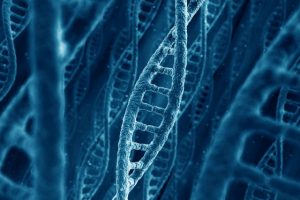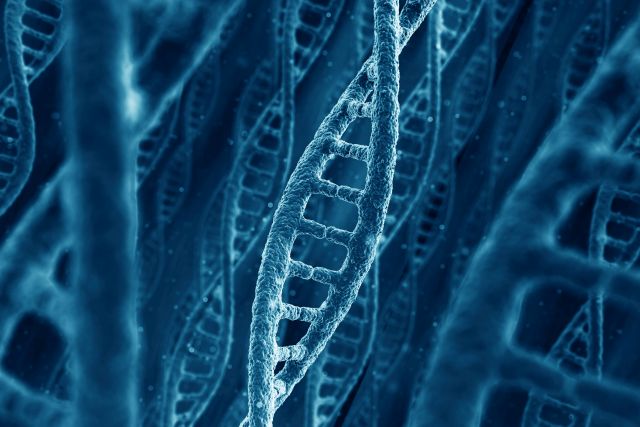Is Alcoholism Hereditary? – the effects of Genetics on Addiction
Have you ever wondered why some people seem to be able to handle their drinking more than some others?
Have you ever noticed how some people seem to be able to drink more alcohol than others without having the outward appearance of being drunk?
Have you ever noticed how some people get a bit tipsy after one or two drinks and then stop drinking?
Well contrary to popular drinking culture, it is probably not good for the body of the person who can keep on drinking alcohol for hours and hours. In fact, the person who can have just a couple, and then stop drinking will be far better off in terms of health benefits than those who persist with long term alcohol abuse. This does not just mean that they can avoid alcoholic addiction, but has more to do with the effects of alcohol on the brain.
Yes alcohol is a psycho-active drug, and causes many chemical interactions inside the brain, and the long term effects of drinking too much alcohol are not fully understood, and can be very serious.
The answer to some of these questions can be hidden in our genes
Yes unfortunately, scientists have proven that we can be genetically susceptible to alcohol addiction, and our genetic susceptibility to alcoholism is clearly on the list of concern.
Of course, our environment, our upbringing, our social conditioning and our cultural conditioning all play a part in our acceptance and habits with regards to drinking alcohol, but now we can also add hereditary factors and genetics to the list of factors that influence the way we drink alcohol.
The evidence of genetic susceptibility has not provided all of the answers that scientists have asked about the science of addiction, but it has certainly filled in a lot of the blanks.
Do you ever worry is alcoholism hereditary? Let’s explore that a bit further, but first we need to understand a whole range of questions that are related to the bigger issue:
- Why are some people more disposed to alcohol addiction – is alcoholism genetic?
- Why are some people more disposed to alcohol dependency – is alcohol dependency genetic?
- Is there an alcoholism gene, Is drug abuse hereditary?
- Why is Alcoholism considered a Disease?
- Why do some people drink alcohol excessively or to harmful levels?
- Why do some people seem to have a higher tolerance or capacity to drink more alcohol?
- Why do some people have one drink, and then stop drinking alcohol?
- Why do some people get severe withdrawal symptoms from alcohol?
- Why do some people experience worse cravings and urge to drink alcohol?
- Why do some people get a much higher feeling of euphoria or dopamine reward?
Well, thanks to the latest outcomes from the scientific exploration of genetics, we have been able to explain some of these key differences in the way alcohol affects us, and that alcohol problems can be genetic. These scientific findings have helped explain many of the differences between our different reactions to alcohol, and the many different ways in which our body responds to the effects of alcohol.
For all of those of us who would like a simple straightforward
answer to the question, “Is alcoholism hereditary?”
the answer is YES, but depends!
The early scientific studies into the genetic predisposition to alcohol addiction struggled for many years to find a direct link to a single gene that would provide a simple and straightforward answer. The reason they struggled to find the single gene responsible for addictive behavior was that it didn’t exist!
There is no single gene responsible for addiction to alcohol, but rather there is a range of genetic associations that influence susceptibility to any addictive substances.
In fact the most recent studies into the genetics of alcoholism found that there are many genetic markers in the susceptibility to alcohol dependency, and different combinations and interactions of these various genetic components give rise to an endless variation in the genetic susceptibility of any given person to alcohol. In other words, the answer is not black or white, there are many shades of grey about the way alcohol affects your body.
Susceptibility to addictive behavior is a “polygenic trait” which means there are many genes responsible for our individual reaction to addictive drugs, and even our individual reactions to any of the different addictive drugs is also dependent on our individual genetic makeup.
And this is the answer to our questions!
Is Alcoholism Hereditary?
Yes there are many genes that affect the way we react to alcohol.
As there is no single gene attached to any given genetic trait, it is the combination of genetic traits that cause such a wide variation in the observed outcomes for individual people. Some can seem to handle drinking excessive amounts of alcohol, some appear more susceptible to being alcoholic, and others seem to develop alcohol dependency, but still lead the appearance of a normal life. Yet other people can have a drink or two of alcohol and stop drinking. We are all different depending on our genetic makeup, but unfortunately alcohol is such a ubiquitous and insidious drug in our society, that some people are in far more danger of getting stuck in the alcohol trap, and they don’t even know the risks with drinking alcohol. Until it is too late.
So this was a very complicated genetic study, and there are an inexhaustible range of experiments ongoing in this area to further understand how genetics affect our addictive tendencies, and hopefully develop ways to counteract the negative side effects of addictive drugs in the future.
So is alcoholism genetic, and is it a problem for me?
For now we need to understand that there is both good and bad news behind these scientific results. If you happen to have a genetic disposition to alcohol dependency, there is no need to panic about the fact that you are about to fall into the clutches of the alcohol trap. In fact, knowing that you may or may not have a predisposition to addiction to alcohol may influence your choices to allow alcohol into your life, or to reject it entirely.
Actually, the risk of not knowing if you have a disposition to alcohol dependency, or not understanding the risk factors in exposure to alcohol are much worse than discovering that you have a genetic disposition to a harmful drug.
Do I have an Alcohol Addiction problem?
At this point, we have to remind ourselves that genetics are only part of the equation, and our environment and upbringing play a major role in our experience with alcohol. As well as alcohol, there are many other addictive substances which we can choose to experiment with, or avoid entirely. And as well as addictive drugs, there are behavioral choices that we need to be aware of such as gambling, computer games and other addictive behaviors which can cause very similar reactions in the reward center of the brain. Many of these addictive behaviors affect the production of dopamine inside the brain, and to a person with a genetic susceptibility to addiction, then any or all of these behaviors may have an elevated risk.
Because dopamine is the central chemical agent involved when drinking alcohol and undertaking gambling or other addictive behaviors, we need to be aware that there are very similar effects between these behaviors. If you are aware that you may have a disposition towards a gambling addiction, beware you may also have a predisposition toward alcohol addiction also.
Beware when genetics and environment collide
So because we now believe there is an inherited predisposition to alcoholism we need to be aware that it can tend to run in families, and this is where environmental or upbringing factors can collide with genetic factors. What this means is that if your parents pass on the genetic susceptibility to drink too much alcohol, as well as providing exposure to alcohol, and maybe even approval to drink alcohol then you have a strong influence to be caught in the alcohol trap. This unfortunate circumstance has the potential to create a double whammy effect, for those who are susceptible to alcohol addiction.

Is Alcoholism Hereditary
There are many different ways a person can quit alcohol. Some people prefer to quit alcohol at home by themselves or with under the supervision of a physician (see your doctor if necessary). A more expensive solution is to undergo alcohol rehabilitation or even an alcohol detoxification program. These treatments need to be conducted at a medical clinic or in a controlled alcohol detox center, and generally use several medications to help with alcohol addiction.
However, we need to be aware that a detoxification program is not the same as a cure from alcohol addiction. Alcohol rehabilitation tends to treat only the symptoms of the alcohol problem, and not deal with the underlying problems. Even if a person can successfully stop drinking alcohol, there is also alcohol addiction counseling to change the need to drink, or to change the mental approach to continue drinking.
A long term solution to being able to avoid alcohol is to participate in a support program, with other people who have met with success in quitting alcohol. People in a support community usually do better because it helps to change their daily routine, and helps to avoid the daily triggers that cause us to continue to drink alcohol.
So if you are concerned is alcoholism hereditary, and maybe you have a relative who drinks too much alcohol, or you are worried about your own relationship with alcohol, let us help you at Love Being Alcohol Free.



